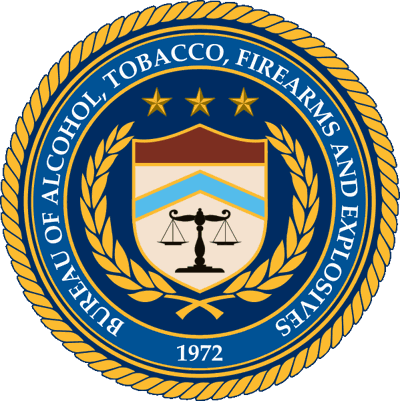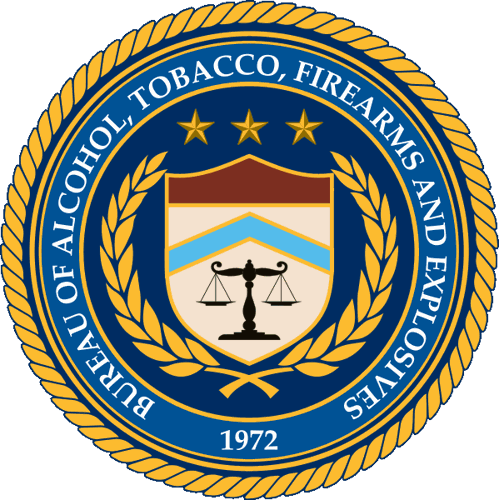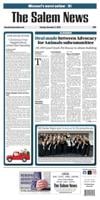On Jan. 13, the Federal Bureau of Alcohol, Tobacco, and Firearms announced a ban on a commonly used firearm accessory called a pistol brace. The ATF says 180 days after the ruling was announced, it will be illegal to own certain firearms equipped with a pistol brace unless the owner has complied with the stipulations of the ruling.
Pistol braces are a commonly owned and used accessory which attaches to the gun in place of a stock. Braces are made for a variety of firearm platforms, including true handguns, but are most commonly found on AR-15 and AK-47 style firearms. The brace has a strap that the shooter can use to affix the gun to his forearm, offering greater stability for shooters who are disabled or who are otherwise required to shoot one-handed.
Many people who are not disabled own pistol braces for another reason. Due to ATF regulations pursuant to the National Firearms Act of 1934 and other gun laws, all rifles with a stock and a barrel of less than 16 inches are considered an SBR, or Short Barreled Rifle, which are heavily regulated by the ATF. Shooters who wish to legally own an SBR are required to apply for permission with fingerprints, serial number, and photos, wait an undefined amount of time for processing, and pay for a $200 tax stamp. The other option that was formerly open to gun owners was to remove the regular gun stock in favor of a pistol brace.
A rifle with a barrel under 16 inches that has a pistol brace installed was formerly classified as a “pistol” by the ATF, and therefore did not require the long process of obtaining a tax stamp. The ATF has long held that attaching a stock on a pistol or short rifle would classify the firearm as an SBR. However, in Nov. 2012, the ATF determined that installing a stabilizing brace on a short-barreled AR-type rifle would not change that firearm’s classification from a regular handgun to an NFA-regulated SBR.
The braces resemble a stock enough that they can be shouldered and fired like a regular rifle. Many gun owners used pistol braces instead of opting for the legally restrictive SBR’s. Firearms sporting pistol braces could be found in most gun stores across the state, as well as most of the country, depending on local laws. Now, the ATF says these weapons will be considered the same as an SBR, and therefore, a violation of federal gun law.
The ATF’s summary of the 293-page final ruling says the entity aims to “clarify when a rifle is designed, made, and intended to be fired from the shoulder.”
Specifically, the ATF says that under the Gun Control Act of 1968 and the National Firearms Act of 1934, the definition of a rifle includes weapons that are equipped with an accessory or other attachment, “e.g. a stabilizing brace”, that allows the weapon to be fired from the shoulder. The ATF says that this and “other factors” show that a weapon was designed to be shoulder-fired. This comes despite a 2014 letter issued by the ATF that says the bureau does not classify pistol braces as a stock simply because it can be shoulder-fired.
“We have determined that firing a pistol from the shoulder would not cause the pistol to be reclassified as an SBR,” reads the letter. “Generally speaking, we do not classify weapons based on how an individual uses a weapon.”
According to the Congressional Research Service, unofficial estimates place the number of privately-owned pistol braces at around 10 to 40 million. The CRS says that changing the classifications of these firearms would likely affect millions of Americans.
For gun owners who find themselves on the receiving end of the rule, the ATF has given some options. They may either attempt to register the firearm with the ATF and apply for a tax stamp, alter the firearm so that it has a barrel 16-inches or longer, permanently dispose of or destroy the brace, turn the weapon in to the ATF, or destroy it.
The federal government maintains that pistol braces are a dangerous loophole. U.S. Attorney General Merrick Garland said that keeping communities safe from gun violence is among his department’s highest priorities, and that the rule is in keeping with the spirit of the National Firearms Act.
“Almost a century ago, Congress determined that short-barreled rifles must be subject to heightened requirements. Today’s rule makes clear that firearm manufacturers, dealers, and individuals cannot evade these important public safety protections simply by adding accessories to pistols that transform them into short-barreled rifles,” said Garland, while announcing the rule.
Second amendment advocates say that the new rule places gun owners in a precarious legal position, since the rifles and accessories they own were considered completely legal when they were purchased.
Stephen Stamboulieh, an attorney with second-amendment advocacy group Gun Owners of America, appeared in a YouTube video on the channel “Guns & Gadgets” filmed at Shot Show 2023, a firearms industry convention. In the video, he outlines concerns about the rule after having spoken with the ATF.
Stamboulieh said the process to purchase an NFA-regulated firearm used to start with the application. Then, if approved, the individual could go legally build or buy the gun. If denied, the individual simply can’t buy the gun, but has committed no crime. Now, the ATF says that the firearm already owned by the individual is illegal, and therefore the owner must document the firearm. This involves sending serial numbers and other information to the ATF, who could potentially deny the application, leaving the individual with no choice but to surrender the firearm, or face arrest and prosecution. The concern is that denied applications will be used as evidence to prosecute, since they contain photos, serial numbers, and fingerprints.
Local machine shop Odom Metal Works specializes in the manufacture of gun parts such as sights. Owner Dave Odom, and his teammate Caleb Gidcumb, recently won the Mammoth Sniper Challenge, a precision shooting competition held in Georgia.
Odom said that though the brace rule won’t affect him personally, he feels the rule is needless.
“A pistol is already way more concealable than a short-barreled rifle, and if someone’s going to commit a crime anyway, they’re going to use a handgun.
“I think it’s kind of foolish, and I think it’s a way toward gun registration, for sure. Because you’re going to get millions of people to register their guns.”
Salem Police Chief Joe Chase said he believes the rule is unconstitutional.
“If you’re sending pictures and all that, they’re going to want a firearm serial number. It’s nothing more than a gun registry,” said Chase. “And that’s where I have a problem with it. You’ve got a guy here in Salem, never ran afoul of the law, never had so much as a speeding ticket. You want to make him a felon overnight?
“The biggest problem I have with it is it wasn’t voted on by the people. So, in that regard it becomes, in my opinion, unconstitutional. If the majority doesn’t have a say in the rules, then we’re operating outside the constitution. That’s not to say that I won’t enforce the law, but in the grand scheme of things, I have so many more problems than figuring out if someone has a wrist brace on an AR pistol.”
Chase said pistol braces offer little to no advantage to would-be shooters.
“They offer no benefit. The only place that they would offer a benefit is if you have one scoped. You can use them during alternative (hunting) season,” said Chase. “We’re eliminating some scary accoutrement that can be attached to an AR. Ever use one? Strap it on your arm. Go out and shoot, and see how accurate you are. You’ll be all over the place. If it was such a spooky, deadly thing, it would be standard military issue.”
According to Chase, pistol braces will rank low on the priority list for his department.
“It’s not a priority, and I’m not going to issue any directive to my guys. If somebody has an AR rifle in their vehicle, we’re not going to take an extra step to be like ‘oh, by the way, did you register your weapon, do you have your paperwork.’ That seems almost like Nazi Germany. It doesn’t sit well with me.”
“My opinion for how a police department should work is we shouldn’t sit in opposition to our citizenry. We should work with our citizens. There are small things that irritate people, speeding tickets and stuff like that. But we don’t create the laws, we just enforce the laws, when it comes to those small aggravating things. But on something like this… Unless a weapon is used in a crime, and we have a reason to look further into it, it’s really not a primary concern for us.”












